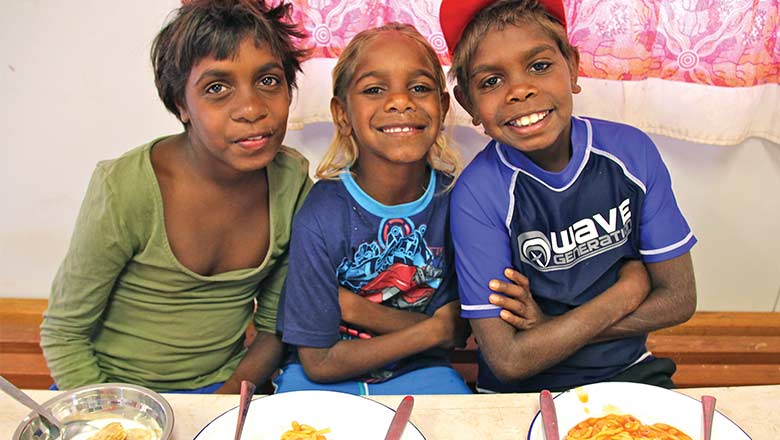Search
Showing results for "grants"

News & Events
Not just a breakfast programA good healthy breakfast is not just a vital foundation for a productive day but can lay the groundwork for a community to pull together to overhaul its health.
Research
Goroka Otitis Media Study: Prevalence and associated risk factors of otitis media in children attending urban clinics in Goroka, Eastern Highlands Province of Papua New GuineaOtitis media (OM, middle ear infections) and the consequent hearing loss are major concerns for Aboriginal people and OM can seriously impact on children’s learning potential which in turn will impact on life as an adult.
Research
What is triggering immune reactions in people with MS?Multiple sclerosis (MS) is a condition where a person's immune system attacks the brain and spinal cord.
Research
A randomised-controlled trial of a parent-mediated intervention for managing uncertainty in young children diagnosed on the autism spectrumGail Andrew Videos Alvares Whitehouse Watch and listen to Andrew PhD PhD Principal Research Fellow Deputy Director (Research); Angela Wright Bennett
Research
Investigating the impact of developmental coordination difficulties across home, school, and community settings: Findings from the Australian Impact for DCD surveyTo evaluate the participation difficulties experienced by children with developmental coordination disorder in home, school, and community environments.
Research
Mode of delivery and behavioral and neuropsychological outcomes in children at 10 years of agePrevious studies have reported that mode of delivery, particularly cesarean delivery is associated with neurodevelopmental outcomes in children. This study evaluates behavioral and neuropsychological test scores in children based on mode of delivery.
Research
Evidence that infant and early childhood developmental impairments are associated with hallucinatory experiences: Results from a large, population-based cohort studyCognitive and motor dysfunction are hallmark features of the psychosis continuum, and have been detected during late childhood and adolescence in youth who report psychotic experiences (PE). However, previous investigations have not explored infancy and early childhood development.
Research
Whole-cell pertussis vaccine in early infancy for the prevention of allergyThis is a protocol for a Cochrane Review (intervention). The objectives were to assess the efficacy and safety of whole‐cell pertussis (wP) vaccinations in comparison to acellular pertussis (aP) vaccinations in early infancy for the prevention of atopic diseases in children.
Research
Timeliness of signal detection for adverse events following influenza vaccination in young children: a simulation case studyActive vaccine safety surveillance leading to rapid detection of a safety signal would likely have resulted in earlier suspension of Fluvax from the vaccination programme
Research
Continuity of temperament subgroup classifications from infancy to toddlerhood in the context of early autism traitsOur previous cross-sectional investigation (Chetcuti et al., 2020) showed that infants with autism traits could be divided into distinct subgroups based on temperament. This longitudinal study builds on this existing work by exploring the continuity of temperament subgroup classifications and their associations with behavioral/clinical phenotypic features from infancy to toddlerhood.
